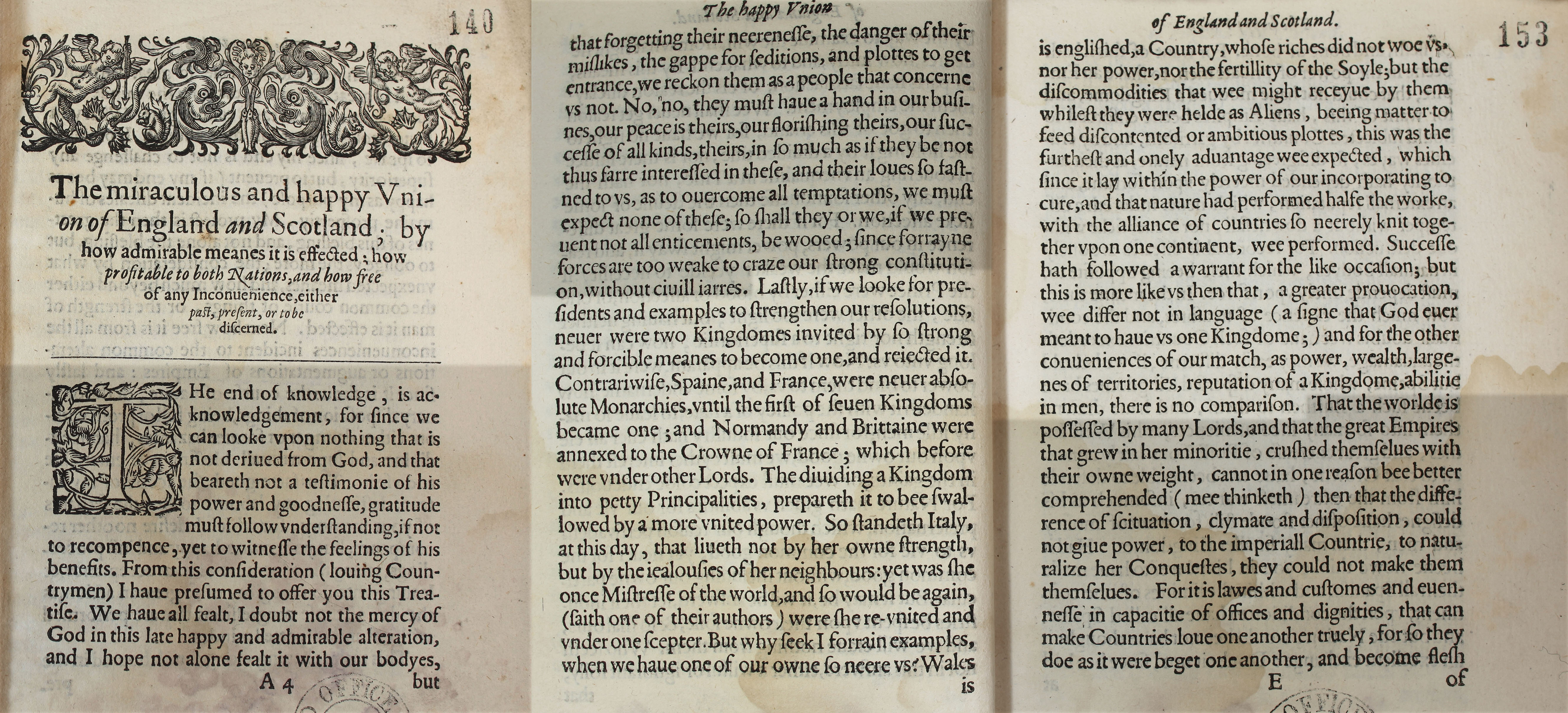Extracts from a pamphlet on the union between England and Scotland, 7 December 1604 (catalogue ref: SP 14/10a ff.140-156)
During King James I’s reign, printed pamphlets were used as a means to share certain political views. This source is a pamphlet that was intended to persuade people about the benefits of a union between England and Scotland and the section that is transcribed invites its readers to look to comparisons with European countries.
Transcript
1. 140r
The miraculous and happy Union of England and Scotland; by how admirable means it is affected: how profitable to both Nations, and how free of any inconvenience, either past, present, or to be discerned…
…
2. 152v [halfway down]
Lastly, if we look for precedents and examples to strengthen our resolutions, never were two Kingdoms invited by so strong and forcible means to become one, and rejected it. Contrariwise [in reverse], Spain, and France, were never absolute Monarchies until the first of seven Kingdoms became one; and Normandy and Brittany were annexed to the Crown of France; which before were under other Lords. The diving a Kingdom into petty [small] Principalities, prepares it to be swallowed by a more united power. So stands Italy, at this day, that lives not by her own strength, but by the jealousies of her neighbours, yet was she once Mistress of the world, and so would be again (says one of their authors) were she re-united and under one sceptre. But why seek I foreign examples, when we have one of our own so near us? Wales
3. 153r
is englished, a Country whose riches to not woe us, not her power, not the fertility of the soil, but the discommodities that we might receive by them whilst they were held as Aliens [foreigners], being matter to seed discontent or ambitious plots, this was the furthest and only advantage we expected, which since it lay within the power of our incorporating to cure, and that nature had performed half the work, with the alliance of countries so nearly knit together upon one continent, we performed. Success has followed a warrant for the like occasion, but this is more like us then that, a greater provocation, we differ not in language (a sign that God ever meant to have us one Kingdom) and for the other conveniences of out match, as power, wealth, largess of territories, reputation of a Kingdom ability in men, there is no comparison.
